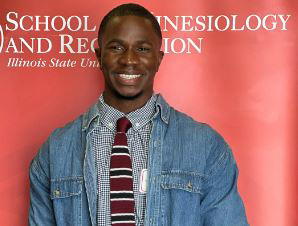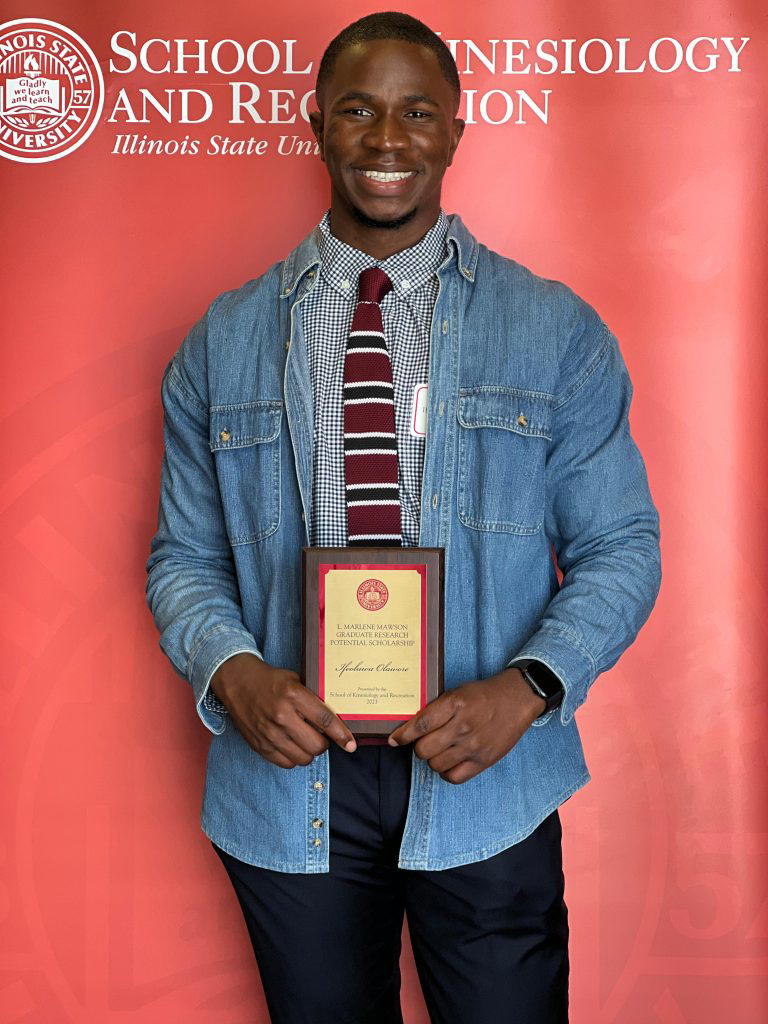
By Ayo Onikoyi
An Oyo state indigene, Ifeoluwa Olawore is consistently driving into the biomedical field through the use of emerging technology.
In a recent conversation, Ifeoluwa shared his enthusiasm for leveraging technology to advance the field of biomechanics. Ifeoluwa’s journey into biomedical innovation began with a solid foundation in human anatomy, which he studied at Bowen University in Iwo, Nigeria. He is currently simultaneously pursuing two master’s degrees at Illinois State University—one in biomechanics with a focus on Inertial Measurement Units (IMUs) and the use of Micro-Electro-Mechanical Systems (MEMS) for motion analysis, and the other in project management with an emphasis on technology in the biomedical field.
“I have always been fascinated by how technology can revolutionize movement analysis. My experience rehabilitating from my “genu valgum” (knocked knees) correction surgery birthed the interest” Ifeoluwa explained. He envisions creating wearable sensors and prosthetic devices that use real-life motion data and machine learning to develop more customized and durable solutions.
Ifeoluwa’s pursuit of further knowledge landed him in biomechanics – a field which studies the human body from a mechanical perspective. His deep understanding of biomechanics is rooted in his knowledge of gross anatomy, which gave him comprehensive understanding of the human body using the principles of physics. However, at the graduate level, he has been dedicated to transforming biomechanics from a purely research-focused field into one that fosters innovation. Further discussing his research, Ifeoluwa explained: “One of my main goals has been to move research from the lab to getting data during activities of daily living (ADLs) using technology.”
In the corporate world, he has been preaching his biomechanics gospel in different capacities. At Boa Technologies, Ifeoluwa worked as a researcher, developing and validating disruptive dial-based lacing systems for footwear. This experience underscored the practical applications of biomechanics and informed his subsequent role at Intuitive Surgical as a project manager. There, he managed numerous projects aimed at promoting the development of technology designed for human use. He emphasized the importance of customizing these technologies using pre-built data from extensive studies, while also ensuring they are capable of collecting real-time data to continually refine themselves.

“One of the critical challenges in biomechanics is making sure that data is not confined to the lab but collected in natural settings,” Ifeoluwa noted. He believes that Inertial Measurement Units (IMUs) can play a pivotal role in this transition. These devices, which can be attached to any part of the body, capture signals that can be translated into meaningful data using different algorithms. His master’s thesis is focused on establishing the efficacy of IMUs in capturing natural joint movements and using this data to enhance prosthetic devices.
Ifeoluwa’s ambition extends to improving existing prosthetic technologies using the knowledge of biomechanics. “While these devices are impressive, the natural joint movements and quantitative data feeding them are still lacking,” he said. His goal is to refine this aspect, enhancing the functionality and customization of prosthetics.
He had this to say about a project he is working on – “I am building an Integrated Cloud-based Prosthetic Design Platform. The platform integrates data from various sources, such as biomechanical measurements and 3D scans, to inform and optimize prosthetic designs. It features collaboration tools for stakeholders to work together seamlessly, and a user-friendly interface that facilitates easy access and utilization of these tools.
The platform aims to enhance the design and functionality of prosthetics, making them more personalized and effective, while reducing healthcare costs by minimizing the need for revisions. This innovation is set to empower amputees, leading to more independent and active lives, and positioning the U.S. as a leader in prosthetic innovation.” Successful implementation can potentially reduce the time and cost associated with prosthetic fittings and revisions significantly, enhancing the quality of life for amputees.
This can really transform the prosthetic care industry and spur job creation in the tech-driven healthcare market. His motivation? The potential to make a real difference in people’s lives. “The technology we’re developing has the power to transform daily experiences for individuals with mobility challenges. Every advancement we make in prosthetics can significantly improve someone’s quality of life, and that’s incredibly rewarding,” Ifeoluwa boldly claims.
Looking forward, Ifeoluwa remains optimistic about the potential of technology to drive advancements in biomechanics. “We’re only scratching the surface of what can be achieved,” he concluded. His vision is to continue pushing the boundaries of what is possible, ensuring that biomedical innovations are not only groundbreaking but also tailored to the unique needs of each individual.
Disclaimer
Comments expressed here do not reflect the opinions of Vanguard newspapers or any employee thereof.